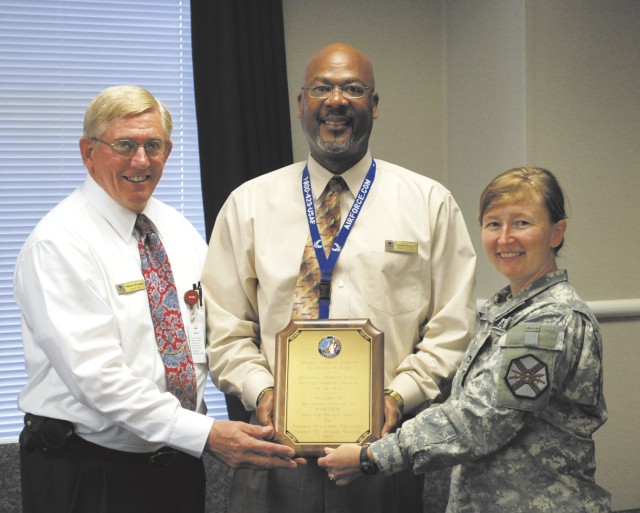
FORT SAM HOUSTON, Texas - Society offers coaches for virtually every aspect of life, from Little League and soccer to voice and athletics and even down to labor and delivery.
A coach provides encouragement, mentorship, praise and sometimes even stern words, but all for the betterment of the individual that they are training or helping to achieve a goal.
At the Fort Sam Houston Soldier and Family Assistance Center, a coach helps injured veterans return to civilian life in a way that respects their sacrifices and honors their rights to live full, productive lives.
Jerome Studivant Jr. manages the Recovery and Employment Assistance Lifelines program, or REALifelines. He provides one-on-one assistance during the transition process, especially at the start when identifying barriers and devising solutions that are critical to ensure a smooth return to success for service members.
REALifelines provides wounded and injured service members returning from Iraq and Afghanistan with resources they need to transition to another rewarding career. The program is part of the Department of Labor's Veterans' Employment and Training Service.
Studivant said communication with the veterans is important.
"The key is to talk to the service members early in their transition, identifying any barriers to employment and devising whatever solutions are needed before they are actually handed their discharge papers," he said.
Studivant has worked with the SFAC since it opened in January, and he is employed by the Texas Veterans Commission.
"Jerome has been an excellent SFAC asset who goes well beyond the extra mile to assist the Warriors in Transition with Texas Veteran Commission info and employment opportunities," said SFAC Director Charles O'Leary.
Studivant was recognized as the Texas Outstanding Disabled Veterans Outreach Program Specialist for 2008. Subsequent to that, he was selected as the National Outstanding Disabled Veteran's Outreach Program Specialist for 2008. The awards were sponsored by the Disabled American Veterans organization of Washington, D.C.
"This is one of the most rewarding things I have ever done in my life," Studivant said. "To be recognized by the state was already an honor, but then to be recognized nationally was an even bigger honor."
The Fort Sam Houston SFAC REALifelines program has been called a model program. Recently the Secretary of Labor, the Honorable Elaine Chao, and the Assistant Secretary of Labor for Veterans Employment visited to see Studivant's program.
In a speech at BAMC, Chao said, "Employment is the dominant concern of most service members re-entering civilian life. This is particularly true of our wounded, ill and injured service members returning from the Global War on Terror."
The Labor Department has a close partnership with Brooke Army Medical Center. The Army has provided Studivant with an office inside the SFAC. Case managers simply walk down the hall to connect job-seeking Soldiers and their Families with employment assistance.
REALifelines is run by federal and state employees, who are assigned at many of the major treatment facilities and Warrior Transition Units. REALifelines employment specialists conduct employment assessments with wounded and injured service members as they become stabilized at Medical Treatment Facilities and WTUs.
The care does not end there. The Department of Labor follows up with the veterans back to their hometowns and helps them get good jobs. It also helps service member's spouses and caregivers to find good employment. The department has helped address the employment issues of nearly 7,000 wounded and injured service members and their Families.
The REALifelines program, which originated in 2004 at seven major military hospitals in the United States, is expanding to Fort Hood, Texas, and Fort Bliss, Texas.

Social Sharing